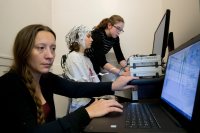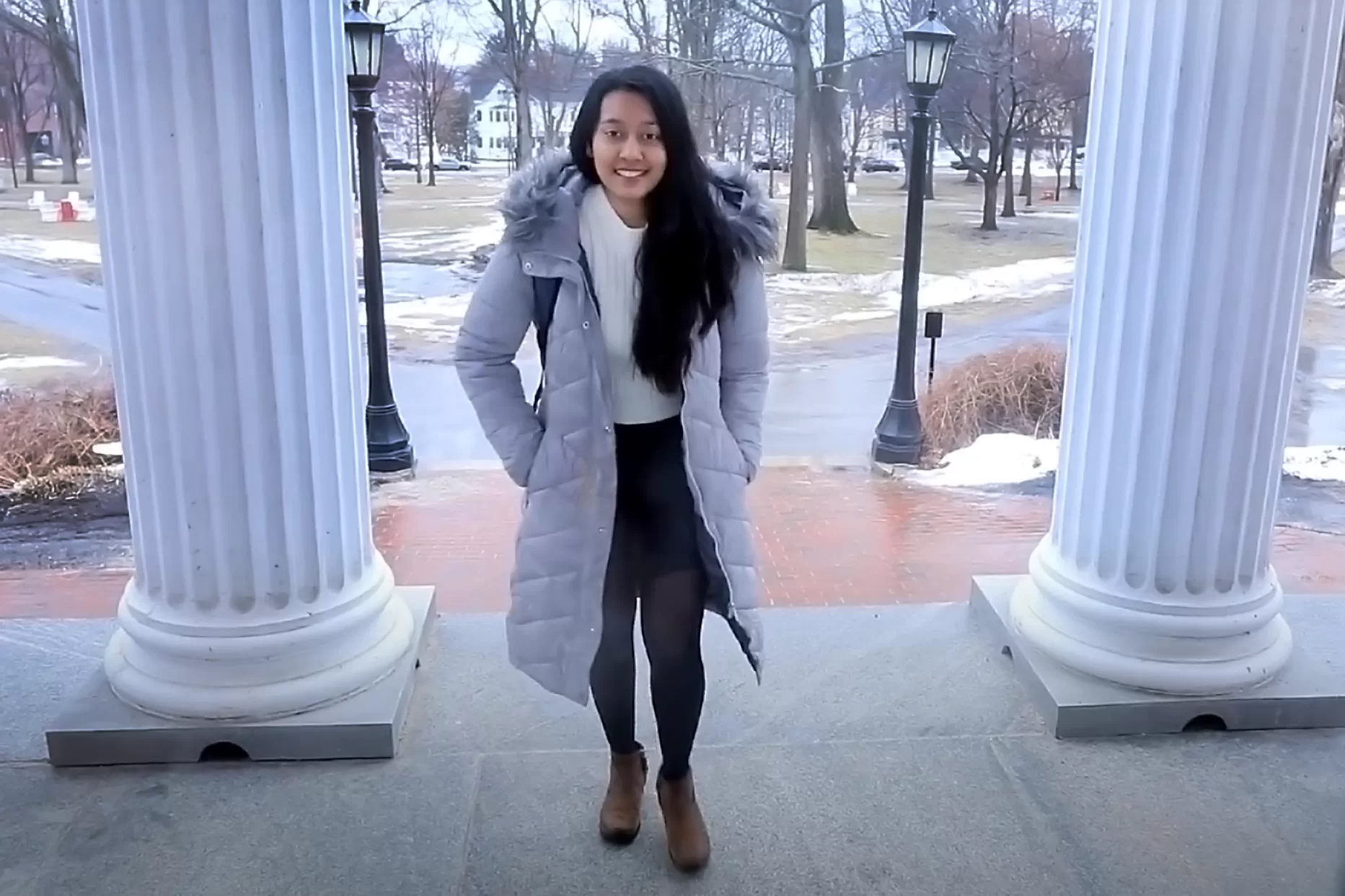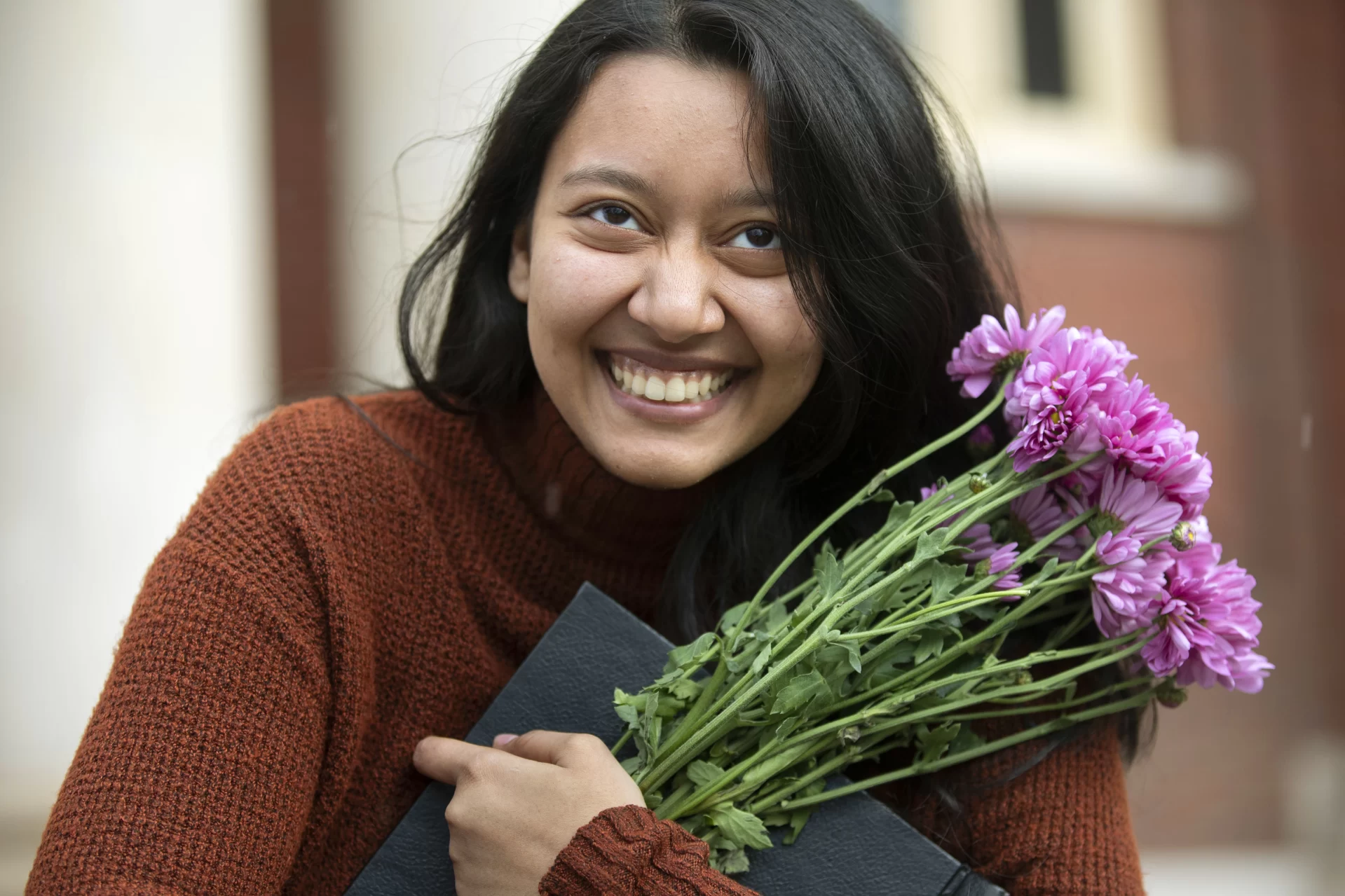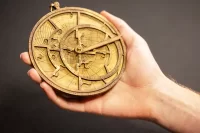
Devanshi Trivedi ’22 of Rajkot, India, has wanted to study the brain ever since third grade, when a friend told her that our eyes see the world upside down, but our brains flip everything right side up.
Trivedi never lost sight of her interest in learning how the brain works. At Bates, she deepened that interest, delving into studies that seek to understand “what makes us who we are,” earning a major in neuroscience and a minor in philosophy.

Trivedi recalls taking her first neuroscience course and thinking, “I have a favorite professor at Bates.” Then she took another neuroscience course — and discovered another new favorite professor. It happened enough, she laughs, that her friends would say, “Not again!”
“Every professor in neuroscience has just approached the work in so many different ways,” she says. “That’s been one of the best parts of my experience.”
Trivedi got to know her senior thesis adviser, Assistant Professor of Neuroscience Michelle Greene, as a summer research assistant in Greene’s lab after her first year. Being advised by Greene for her thesis is a nice bookend to her Bates career. “Hers was the first lab I ever worked in.”
As Trivedi moved from first year to senior year, she went from being a learner of neuroscience knowledge and research methods to a more active collaborator with Greene through her thesis research.
“I started to have a say in the design elements of my experiments,” she says. “We think together about how we want to analyze the results or what kinds of further work we could do.”
Her neuroscience thesis explores the capacity limits of visual memory, and the curious psychological phenomena of “boundary extension” and “boundary contraction.” The former describes how, after we observe an image and then recall it from memory, we tend to zoom out, recalling details that weren’t actually in the image.
Boundary contraction is where our memories crop an image, recalling fewer details as we remember it. It’s a more recently studied phenomenon. “We believe it is related to the amount of information within an image,” Trivedi says. “Our visual memory may be capacity-limited by the amount of information in images.”

While Trevedi arrived at Bates with a keen interest in studying the science of the brain, only later did she discover an interest in an humanistic approach, through her minor, philosophy.
“I’ve always loved thinking about the mind and the brain and how those two sort of coexist,” she says. “How does the brain really create a person? That was something that I’ve been able to explore more through the philosophy side of things: How can an organ — that is just matter — create something that is conscious or that is human?”
Whether it’s neuroscience and philosophy, or any other juxtaposition of academic interests, the effect is to “broaden the scope of whatever you thought your field was. And that just gives you so much perspective.”




